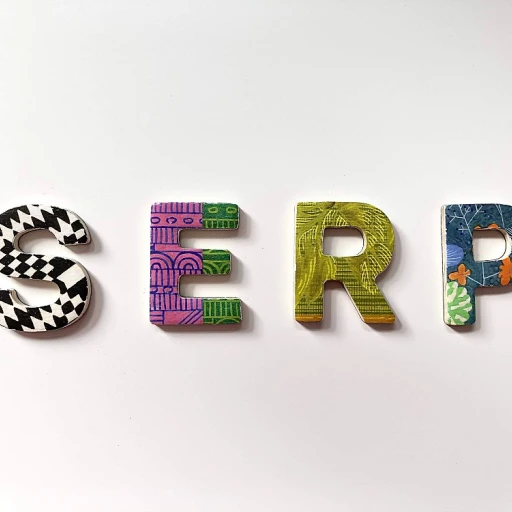The Conundrum of AI Transparency in SEO
Peeling Back the Layers of AI's Black Box
Search engine optimization (SEO) has always been a complex dance between visibility and confidentiality. But with the advent of artificial intelligence (AI), this tango has intensified. AI's ability to parse vast quantities of data for SEO purposes raises compelling questions about transparency. Marketers and SEO strategists are entranced by the efficiency of AI tools, yet are also calling for more clarity around how AI algorithms impact search results. One buzzword you may have encountered is 'the black box of AI,' a term that fuels debates on whether the intricacies of AI processes should be laid bare.
The Tug-of-War for AI Clarity in SEO Practices
For the SEO community, understanding AI mechanisms is paramount. Insights into machine learning models powering search engine algorithms can redefine keyword optimization strategies, link-building efforts, and competitive analysis. According to a study by Moz, understanding search engine algorithms is one of the top challenges faced by SEO professionals. However, this transparency is not without trade-offs. On one hand, increased knowledge about AI processes can lead to improved strategies for organic search visibility. On the other hand, this may also expose the system to manipulation by those looking to game the rankings.
To navigate these waters ethically, it's essential to ensure that AI's role in SEO preserves both its enigmatic prowess and adheres to industry standards. This fine balance is at the heart of the debate on AI's place in SEO ethics. But how do we maintain this equilibrium? It becomes a matter of prioritizing interpretability in AI while safeguarding its intellectual property, a stance echoed by numerous thought leaders in the field. For more insights into the ethical entanglements of AI in SEO, one might explore the ethical compass in AI-driven SEO.
Demystifying AI to Foster Ethical SEO Practices
The call for demystifying AI in SEO is not just about understanding an algorithm's inner workings. It's also about maintaining ethical practices that don't mislead users or unfairly advantage certain websites. SEO experts are increasingly recognizing the importance of ensuring that AI-enhanced SEO tools promote ethical guidelines that parallel the broader principles upheld in digital marketing. This is where the fusion of AI and SEO ethics becomes a narthex for a new era of search marketing—one that values accuracy, fairness, and transparency. In navigating this interplay, it is imperative to foster an environment where AI's sophisticated capabilities are utilized without compromising the ethical foundations of SEO practices.
The Balancing Act: SEO Efficiency vs. User Privacy
The Balancing Act: SEO Efficiency vs. User Privacy
Effective Search Engine Optimization (SEO) strategies are all about striking a balance between reaching peak efficiency and maintaining user privacy. As engines grow smarter with AI integration, the lines delineating ethical considerations from technological prowess become increasingly blurred. A nuanced discourse has emerged, focusing on the harmony between innovative SEO techniques and the protection of private information.
Walking the Tightrope of Data Usage
In the quest for optimal search rankings, data is indisputably king. AI algorithms thrive on vast amounts of data, parsing through user behavior to predict and influence search outcomes. Yet, as these algorithms fine-tune SEO practices, concerns regarding the extent of data collection and usage have sparked a need for firms to practice transparency. Marketers must now navigate the data terrain with precision, ensuring that while SEO tools sharpen the relevancy of content, they also uphold stringent privacy standards. Maintaining ethical AI in SEO is not just corporate responsibility; it shapes the trust and loyalty of users.
Consent and the SEO Equation
The introduction of regulations such as the GDPR and CCPA has shifted the onus back onto organizations to obtain explicit consent from users for their data to be processed. The keyword in contemporary SEO best practices is 'consent-based optimization'. Ensuring users are informed about what data is collected, and how AI-enhanced SEO tools use this information, has become just as crucial as the search rankings themselves.
SEO Strategies That Uphold Ethical Standards
Amid the technicalities, an ethical SEO strategy must be built upon respect for personal data. Businesses today invest in SEO experts who can skillfully integrate AI capabilities while also respecting user privacy. For instance, employing anonymization techniques on collected data before feeding it into AI systems ensures that while search engines become more intelligent in predicting user preferences, they do so without compromising individual identities.
Perhaps the most tactical SEO trend is the shift towards data minimization, where only the most essential data points are harnessed to improve search relevancy. By coupling AI's predictive analytics with minimal data collection, SEO experts can craft an ethical framework that not only fortifies digital visibility but also constructs a trust-based relationship with users.
Avoiding Bias: AI's Role in Content Ranking Fairness
Ensuring Unbiased Algorithms in Content Curation
As artificial intelligence becomes increasingly entrenched in the digital ecosystem, a notable concern arises regarding content ranking: can AI-driven SEO tools maintain fairness and impartiality? The calibration of AI models directly influences their output, honing in on the inherent risk of bias seeping into the digital space. Statistics confirm that AI without proper ethical oversight can perpetuate existing prejudices, hence, deploying machine learning in SEO requires a meticulous approach to curate content free of discriminatory biases.
AI's Accountability in Reflecting Diversity
Artificial intelligence systems are undeniably powerful tools for content optimization. However, their ethical usage hinges on their ability to embrace and reflect the diversity of online communities. Staying abreast of the latest advancements in AI, illustrative examples from industry trailblazers suggest that a multifaceted dataset and unbiased algorithms are paramount to ensuring equal representation in search results.
For example, when AI curates content, it should not favor one demographic over another, a challenge explicitly addressed in the preceding section detailing pioneering sustainable SEO practices. Inclusion and diversity should, therefore, be encoded at the core of AI algorithms, fostering a balanced digital landscape.
Counteracting Ingrained Prejudices with AI
The nexus between AI and SEO also resides in the realm of data integrity. A pivotal precept is to recognize AI's role in dismantling systemic biases that may have infiltrated ranking algorithms. By harnessing AI's analytical prowess, SEO professionals can identify and counteract ingrained prejudices, ensuring that content discovery platforms empower users with equitable information access.
SEO experts and data scientists are tasked with a meticulous examination of the data inputs, algorithmic decision-making processes, and resulting patterns in user engagement. This scrutiny is vital in providing a level playing field for all content creators, thereby enhancing the fairness of content rankings.
In conclusion, as we steer through the complexity of intertwining AI with SEO, maintaining an unwavering focus on equity and impartiality in content ranking is non-negotiable. The inclusion of diverse data sources, regular algorithm audits, and transparent reporting mechanisms are fundamental steps towards the future of ethical optimization, a future where technology serves humanity with fairness at its core.
AI and the Human Touch: The Future of Ethical Optimisation
Enhancing AI Responsiveness to Human Nuance
Understanding the complexity of human languages, sentiments, and behaviors is a challenge that artificial intelligence must constantly navigate in the SEO landscape. The effectiveness of an SEO strategy heavily relies on AI's capacity to interpret context with the subtlety and discernment that humans naturally possess. SEO professionals must prioritize the integration of nuanced language processing to ensure that the AI can distinguish between various shades of meaning, thus enhancing the relevance and accuracy of search results.
Empowering Ethical Decision-Making in AI Systems
SEO tools and platforms are increasingly embedding ethical decision-making mechanisms within their AI systems. By setting ethical guidelines for AI behavior, developers can create boundaries that promote fairness, inclusivity, and a level playing field. In this vein, SEO practitioners must advocate for transparent AI systems that make it possible to trace decision-making pathways and correct them when they go off course. Such transparency fosters trust and ensures that SEO tactics align with broader ethical and societal values.
Harvesting the Synergy of AI and Human Expertise
The future of ethical SEO optimisation isn't about choosing between artificial intelligence and human oversight—it's about finding the optimal synergy between the two. Humans bring irreplaceable skills to the table, such as emotional intelligence, ethical judgment, and creative thinking. Contrarily, AI offers unparalleled efficiency, pattern recognition, and data processing capabilities. To harness the strengths of both, SEO strategists must develop frameworks for human-AI collaboration that maximise the potential of AI tools while ensuring they complement rather than replace human intuition and ethics.
Developing AI That Reflects Rounded Ethical Principles
As AI systems become more sophisticated, the development of AI that encodes a wide range of ethical principles grows increasingly crucial. This development process should involve a diverse set of voices, including ethicists, sociologists, SEO experts, and end-users, to ensure that various perspectives and values are considered. The goal is to construct AI-powered SEO that not only excels in efficiency but also operates under a well-rounded ethical compass, promoting content that reflects the diversity and complexity of the human experience.













